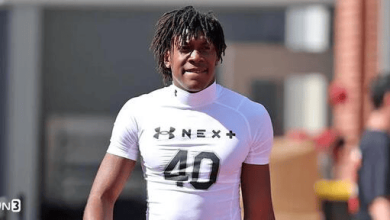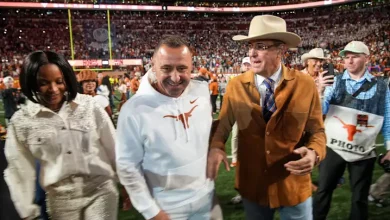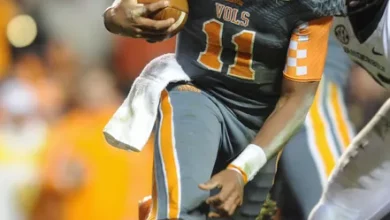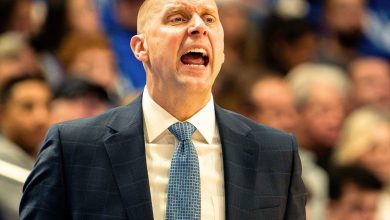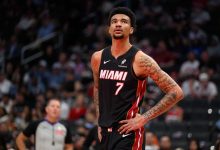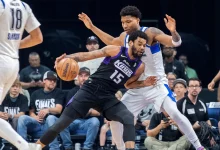What was missing for Georgia football’s leadership in 2024 and what it means for 2025
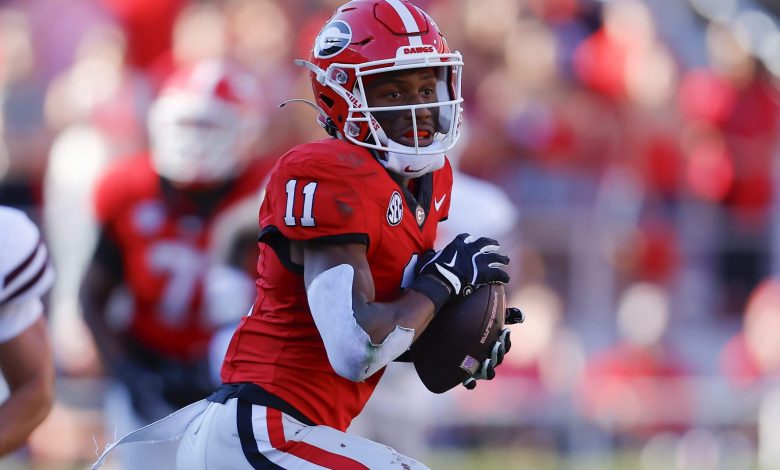
Georgia football has long been regarded as one of the premier programs in college football, consistently competing at the highest level under head coach Kirby Smart. The Bulldogs have seen immense success in recent years, including back-to-back national championships in 2021 and 2022, solidifying their place at the top of college football. However, the 2024 season proved to be a bit of a turning point, highlighting areas where Georgia’s leadership, both on and off the field, was found wanting. Understanding what was missing from Georgia football’s leadership in 2024—and what it means for the 2025 season—is critical for both the program and the future trajectory of Georgia football as a whole.
The Leadership Vacuum in 2024: What Went Wrong?
Despite Georgia’s undeniable talent and depth in 2024, the season was marred by some crucial leadership challenges that became apparent throughout the year. While the Bulldogs remained competitive, there were underlying issues that held them back from reaching the level of dominance they had achieved in previous seasons. These leadership deficiencies can be broken down into several key areas:
1. Inconsistent Quarterback Play
The quarterback position at Georgia in 2024 was one of the most talked-about issues, primarily because of the lack of a clear leader at the position. For years, Georgia had relied on elite quarterbacks like Stetson Bennett, who led the Bulldogs to two national titles. But in 2024, the team found itself transitioning to a new signal-caller, and the inconsistency in play at that position became a glaring weakness.
Carson Beck, who took over the starting role, showed promise but lacked the game-changing leadership and poise that Bennett had demonstrated during his time at Georgia. While Beck had moments of brilliance, there were also several games where he struggled to make key throws, especially in high-pressure situations. The absence of a quarterback who could take charge of the offense, galvanize his teammates, and execute in crunch-time situations created a void in leadership on the field.
Quarterback play is often the focal point of any team’s leadership structure, and Georgia’s lack of a consistent, reliable leader under center in 2024 hindered their ability to truly dominate games when it mattered most. This became especially apparent in key matchups, where the Bulldogs found themselves unable to sustain offensive drives or answer back when trailing in games.
2. Transition in Leadership Across the Roster
Another factor in Georgia’s leadership struggles in 2024 was the transition from a veteran-led team to a younger, less experienced squad. The Bulldogs lost several key leaders from their back-to-back championship teams, particularly on the defensive side of the ball. Players like Jalen Carter, Nolan Smith, and Kelee Ringo left for the NFL, taking with them not only their talent but also their leadership presence.
While Georgia continues to recruit at an elite level, the 2024 team did not have the same type of vocal, experienced leaders who had been instrumental in previous seasons. The leadership void was particularly noticeable on defense, where the Bulldogs struggled with consistency and communication at times. For a team that thrives on discipline, physicality, and aggressive play, the absence of strong on-field leadership was a significant factor in their inability to reach the same level of dominance.
Additionally, the lack of a strong voice in the locker room meant that Georgia struggled to maintain its winning culture throughout the year. In high-stakes moments, when players need to rely on one another and dig deep, Georgia seemed to falter. There was a sense that the team did not have the same level of cohesion or collective motivation that had fueled their championship runs.
3. Coaching Staff Adjustments and Shifting Dynamics
The 2024 season also saw some adjustments in Georgia’s coaching staff, with several key assistants moving on to other opportunities. While Kirby Smart’s leadership remained strong, the turnover in the coaching ranks led to some growing pains in terms of maintaining the continuity and culture that had been built over the years.
For example, the departure of defensive coordinator Dan Lanning after the 2021 season was a significant loss, as Lanning played a crucial role in shaping Georgia’s dominant defensive identity. In 2024, there was a noticeable difference in the Bulldogs’ defensive play, as they struggled to maintain the same level of elite play across the board. New defensive coordinator Glenn Schumann and other members of the staff were still adjusting to their roles, and while the defense was still strong, it was not quite as intimidating as it had been in years past.
On the offensive side, Georgia struggled with its identity. The team had been built on a strong, balanced offense that could dominate both in the air and on the ground. However, in 2024, the offense seemed to lack the cohesion and leadership to consistently execute. With offensive coordinator Todd Monken’s departure to the NFL, there was a sense that Georgia had not yet fully integrated a new offensive scheme that could complement their powerful defense. The result was a lack of balance that hurt the team in critical moments.
4. Emotional and Mental Toughness
A final, often overlooked aspect of Georgia’s leadership gap in 2024 was emotional and mental toughness. During their championship runs, the Bulldogs exhibited a certain mental resilience that allowed them to overcome adversity, whether it was in the form of late-game situations or when facing talented opponents in key matchups. However, in 2024, Georgia appeared to struggle with staying focused and composed in high-pressure moments.
This issue was especially evident in close games or against high-caliber opponents. Georgia was not able to consistently take control when the situation called for it, and they occasionally seemed to wilt under the pressure. While the Bulldogs had the talent to compete, their leadership on the field did not seem as sharp or resolute as it had been in years past. Without that unwavering confidence and mental toughness, Georgia was unable to perform at the championship level they were accustomed to.
What Does This Mean for 2025?
Looking ahead to the 2025 season, Georgia football will need to address these leadership gaps in order to return to the dominant force they were in 2021 and 2022. While the talent on the roster remains exceptional, leadership—both on and off the field—will be critical to their success moving forward. Several key areas must be addressed in order for the Bulldogs to reclaim their spot at the top of college football.
1. Quarterback Leadership and Development
The most pressing concern for Georgia in 2025 will be finding a quarterback who can step into a leadership role and guide the offense with confidence and poise. Carson Beck, if he remains the starter, will need to mature into that leader who can not only make the throws but also rally his teammates in difficult situations. If Beck doesn’t show the necessary growth, Georgia may need to turn to a younger quarterback like Brock Vandagriff or Gunner Stockton, who have the potential to lead but will need to prove themselves on the field.
Whoever takes the reins at quarterback must embrace the role of leader, both in terms of playmaking and as a vocal presence in the locker room. Georgia’s success in 2025 will depend on whether they can regain that commanding presence at quarterback that has been such a key part of their championship teams.
2. Strengthening Leadership Across the Roster
Georgia will need to develop strong leaders across the team to fill the void left by the departure of key veterans. The Bulldogs have a wealth of talent, but talent alone is not enough. Players like linebacker Jamon Dumas-Johnson, defensive back Malaki Starks, and offensive lineman Amarius Mims will need to step up and become the vocal and emotional leaders that the team lacked in 2024.
This will require building a cohesive, motivated team where every player understands their role and responsibility to each other. The best Georgia teams have always been those that played as a unified unit, with each player willing to fight for their teammates. Smart will need to ensure that this leadership mentality is instilled throughout the roster in 2025.
3. Coaching Stability and Identity
The coaching staff, while still led by Kirby Smart, will need to solidify their roles and create a clear identity moving into 2025. Whether it’s a more balanced offensive attack or an even more aggressive defense, the Bulldogs must ensure that their coaching staff is aligned and able to execute a cohesive plan. Smart’s leadership will remain paramount, but he will need to empower his assistants to develop the team into a true championship contender.
4. Mental Toughness and Focus
Finally, Georgia will need to regain the mental toughness that characterized their championship runs. This includes developing resilience in high-pressure situations and the ability to close out games against top-tier competition. Whether it’s through team-building exercises, leadership training, or simply gaining experience through tough games, Georgia must find a way to cultivate that relentless drive that they lacked at times in 2024.


